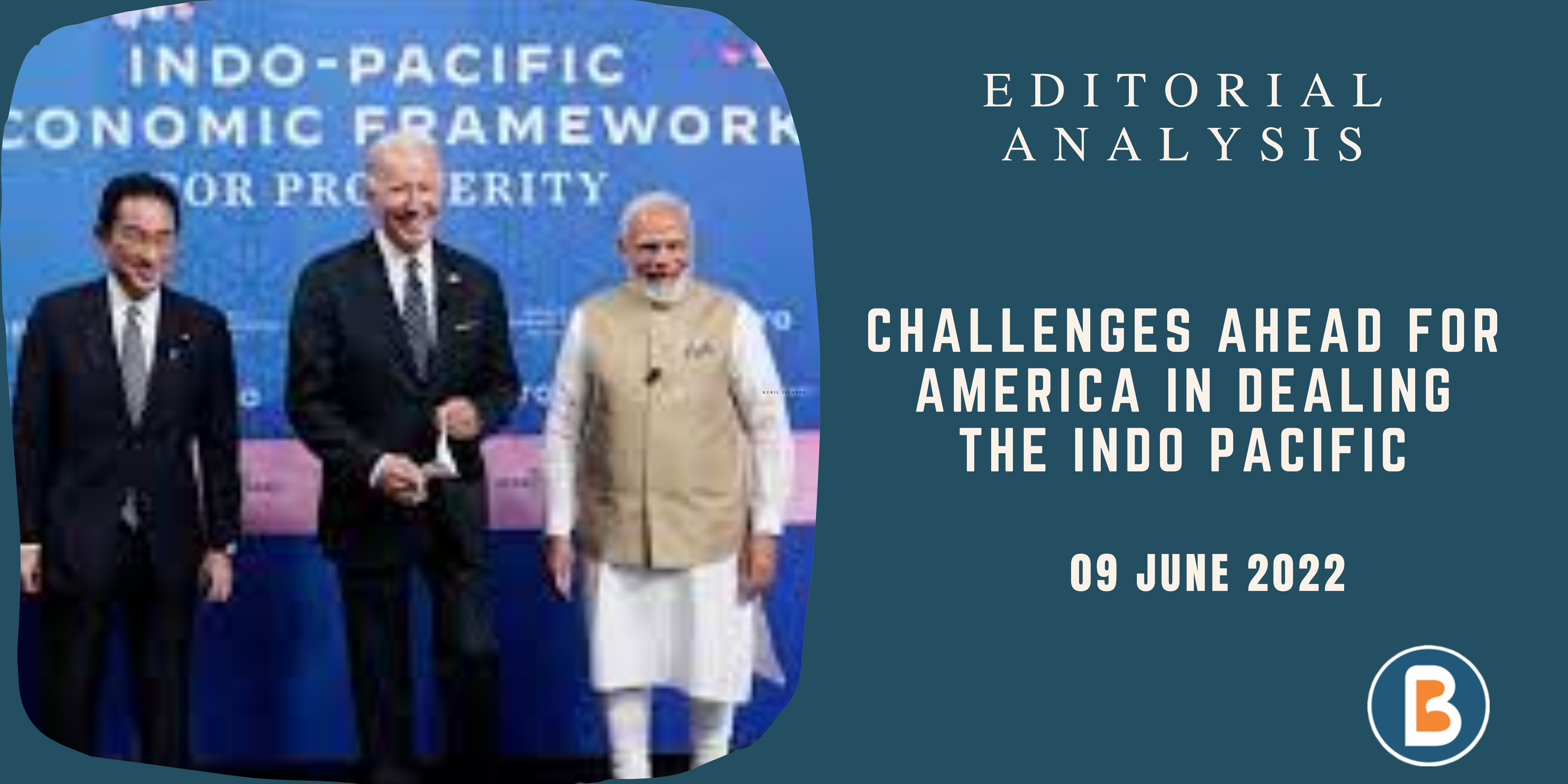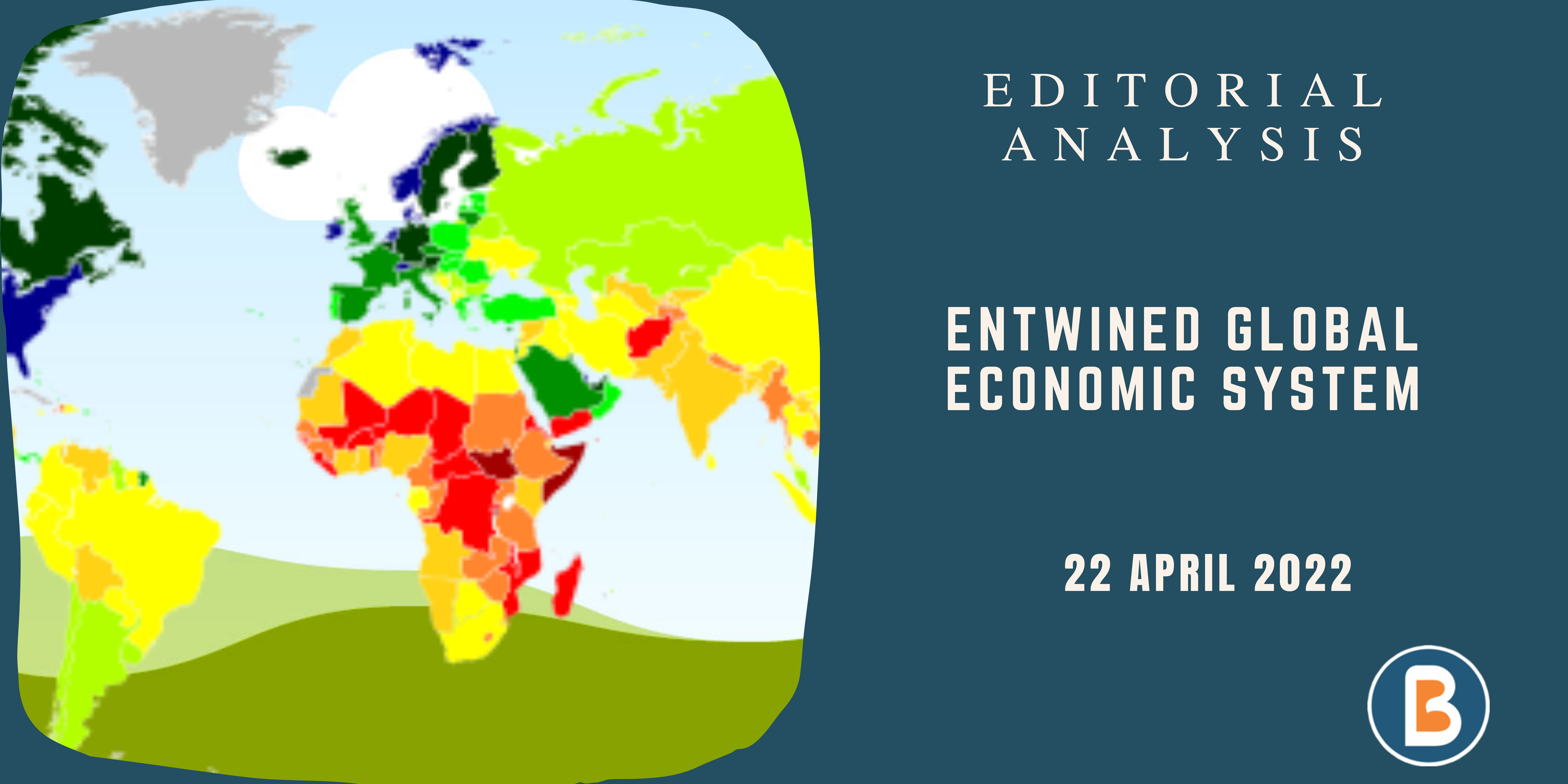Challenges Ahead For America in Dealing the Indo Pacific
Context:
- Biden’s latest visit to Asia has been succeeded with certain dramatic incidents including North Korea test-firing three ballistic missiles and Japan’s Defence Minister said Chinese and Russian fighter jets carried out joint flights over the Sea of Japan and the East China Sea on May 24 as leaders of the Quad met in Tokyo.
What are the outcomes of the visit?
- The new conservative South Korean government indicated a willingness to increase pressure on North Korea, even announcing that it would expand the presence of a US missile defence system in the nation, which had previously enraged China.
- In Japan, the government promised him that it was willing to scrap the country’s long-standing annual defence budget ceiling of 1% of GDP.
- Mr. Biden indicated at a news conference that if Taiwan was attacked by China, the US would intervene militarily to defend it.
- This comes amid increased worry over Chinese military operations in the region.
Conflicts in the region:
- North Korea regularly threatens South Korea and Japan with nuclear weapons and missiles.
- China not only flouts international maritime law in the South China Sea, but it also has a dispute with Japan over the Senkaku Islands.
- The conflict over the Spratly Islands, which are allegedly home to significant oil and natural gas reserves, involves six states, including China and Taiwan.
- China has militarised several of the disputed isles, islets, and coral reefs, and countries such as Vietnam and the Philippines are concerned about being left behind.
About The IPEF framework:
- Almost every country in this region recognises Beijing’s assertiveness and aggressiveness, which is perceived as a desire to be at the centre of things and on its terms, but few are able to devise a strategy to cope with it.
- The establishment of an Indo-Pacific Economic Framework (IPEF) with Australia, Brunei, India, Indonesia, Japan, South Korea, Malaysia, New Zealand, the Philippines, Singapore, Thailand, and Vietnam is one way the Biden administration has attempted to circumvent this.
- The IPEF will focus on four major pillars: digital trade standards and rules, resilient supply chains, green energy commitments, and fair trade.
Way Forward:
- As Michael Schuman said, the message to Chinese President Xi Jinping should be loud and clear: “As in Europe, where Vladimir Putin’s aggression is uniting the rest of the region against him, so too in Asia is an aggressive China entrenching, not weakening, American power.”
Source The Hindu




